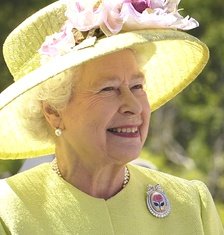Featured Quizzes
User Quizzes
Create Quiz
Data and Charts
Badges and Games
About JetPunk
JetPunk Shop
Dark Mode

British Words Quiz #2
Translate these American words into their British equivalents.
This quiz does not suggest that all British people use these words 100% of the time
Our original quiz, translating British to American, is probably easier for Americans
Rate:
Featured Quiz
Last updated: August 30, 2018
You have not attempted this quiz yet.
More quiz info >>
| First submitted | July 26, 2011 |
| Times taken | 103,035 |
| Average score | 62.5% |
| Rating | 3.95 |
4:00
Enter British version here:
0
/ 24 guessed
Time Used
00:00
Best Time
00:00
The quiz is paused. You have remaining.
Scoring
You scored / = %
This beats or equals
% of test takers
also scored 100%
The average score is
Your high score is
Your fastest time is
Keep scrolling down for answers and more stats ...
|
|
|
New and Popular
Save Your Progress
British-American Translation
Quiz series by Quizmaster
Copyright H Brothers Inc, 2008–2024
Contact Us | Go To Top | View Mobile Site

https://en.wikipedia.org/wiki/Greasy_spoon
although we may use dodgy in replace for sketchy sometimes but there is far too many other words we use instead of that so I would really not include that.
half decent attempt
Also I commented the Aussie translations, feel free to read them.
Also, Shrove Tuesday = Pancake Day, not Pancake Tuesday.
There was another fun synonym for it I heard the other day, but I forgot..
Excuse me, I need to pop out to the chippy now.
Now all these British words sound weird to me.
Queen's English: drink driving;
Glaswegian English: driving.
Elevator: lift
Cookie: cookie/biscuit/bikkie (if it has choc chips or chocolate in it like at Subway then it’s a cookie but most others are biscuits/bikkies e.g Anzac biscuits)
Parking lot: car park
Garbage: rubbish (garbage is widely understood though, trash however while understood is generally a way younger people call something shit)
Counterclockwise: anti-clockwise (counter anything is anti- (pronounced antee) in Australia)
Math: maths
14 Pounds: ? (Australians have only used the metric system since the 1950s/1960s, some people use feet for height e.g "six-foot tall man" but most younger people use metric for height)
Takeout: takeaway (e.g takeaway shop, Chinese takeaway, etc)
Z: zed (remember, you will be seen as Americanised and stupid if you are not American and say it as zee, use zed instead)
Eraser: rubber
Last name: last name/surname (surname is a formal term but last name is more common)
Pants: pants (can be any type including shorts)
See reply
Napkin: serviette (napkin is widely understood though)
Sidewalk: footpath/path
Fat Tuesday: ? (not sure as to what this actually is)
Panties: underpants/undies/knickers (knickers only ever refers to women’s underwear though)
Sketchy: dodgy
Drunk driving: drink-driving
Trash can: bin
Truck: truck (presuming this is a long vehicle with a trailer, if it’s a car-sized vehicle with a trailer then it’s called a ute)
Flashlight: torch
Wrench: spanner
And those are the Aussie translations.